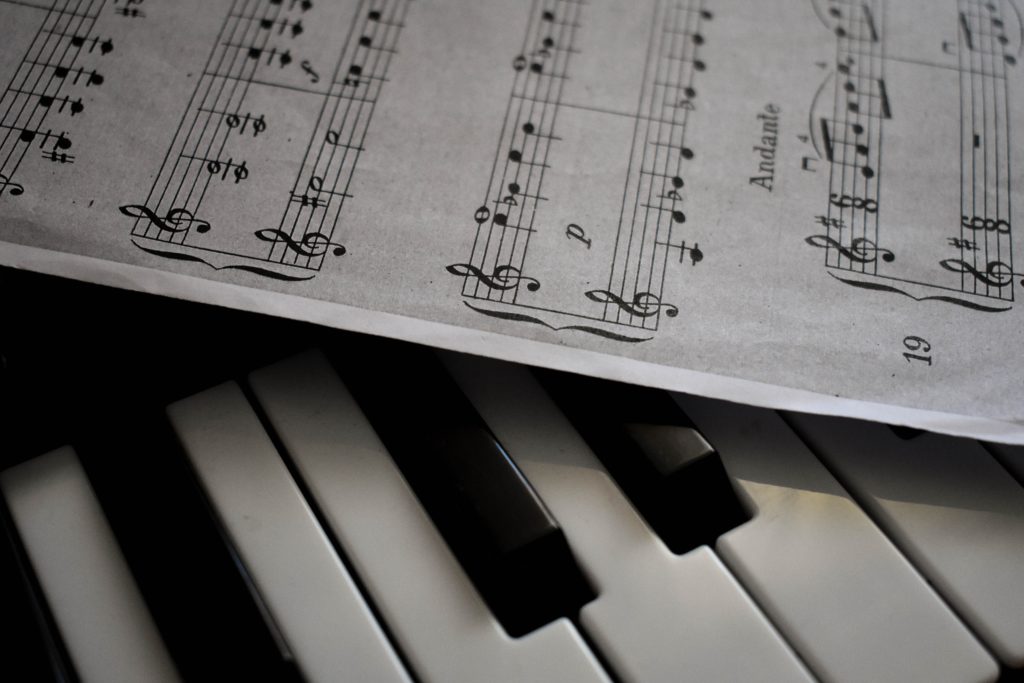
By Ellen Braunstein
Diane Downs’ family never made music lessons a priority when she was young and, for a time, homeless. It was only when she reached her 50s that she had the time, money and a place to study guitar.
Roger Bradbury, 68, played guitar briefly in his youth. In retirement, he took up electric bass and guitar as a way of breaking the isolation he felt during his hours of writing. He performs with fellow musicians now.
Downs and Bradbury picked up their instruments later in life. But unlike kids, they bring maturity, patience and focus to a pursuit that strengthens memory and dexterity, instructors say. Music lessons, they add, can also improve one’s mental state and spur creativity.
“It helps improve hand-eye coordination and certainly keeps the brain sharp,” said Dale Kotler, a guitar and bass teacher at Victor Litz Music Center in Gaithersburg.
“I really believe it’s a great mental exercise,” said Fred Pinkney, a 66-year-old biologist, who is studying piano with Arthur Rogiers at the Richardson School of Music in Takoma Park. “To challenge yourself with something adds a whole new dimension to my life, to be able to not just listen to music, but to be able to make music.”
Amid the pandemic, online music instruction has become a refuge for adults with more time at home and a desire to challenge themselves, said Vincent Richardson, owner and director of the Richardson School of Music. “We have seen growth in older adult students. They are taking more time for themselves. They are thinking about things they’ve always wanted to do.”
“The pandemic has been a fantastic source for older students to actually take more lessons, because you can do it virtually,” said Sarah Watkins, a pianist and director of Watkins Academy of Music, with studios in Gaithersburg, Germantown and Urbana.
Music study improves time management and discipline. “Even when you don’t want to, it’s kind of sit down and practice,” Kotler said. “Getting the fingering techniques and getting it smoother and faster, there is a lot of satisfaction in that. It gives you a sense of achievement.”
Taking a lesson can be just the mental break folks need after a long stressful week, Richardson said. “When done properly, it’s definitely great for mental health.”
According to Kotler, “They can be a little bit tense or maybe not in the greatest mood, but by the end of the lesson, they’re relaxing and it’s had a positive impact on their mood.”
“Older students are looking for an outlet, a quiet place that they can express themselves in their own space,” Watkins said. “They want to play something that rejuvenates their mind, uplifts them in a different way.”
Bradbury has studied with Kotler for three years. “It really does take you out of whatever quandary you are in and puts you in a different place,” he said. “It’s a relief actually to come in and play something and even if you don’t play it very well, you know
practice will get you better.”
Piano, guitar and voice seem to be the most sought-after instruction for older adults, Richardson said. Guitar is especially popular with baby boomers because of their love of ‘60s and ‘70s music.
The ukulele has made a decades-long resurgence because it’s fun and easy to learn, said Kevin Mittleman, owner and instructor of guitar, banjo, ukulele and mandolin at School of Music in Rockville.
A typical adult student started and stopped an instrument when they were young to pursue their education and other careers.
“They wish they had never quit and they come back,” said Richardson, who teaches piano. “Others always wanted to play an instrument but never got a chance to. Then there’s a segment of folks who just want a new hobby that’s going to keep their brain healthy.”
Learning music requires patience and adults are more so because they have the experience of what it means to wait.
“You have to have patience with yourself and grace,” Richardson said. “I was very humbled when I started taking cello lessons as a professional musician. I knew how to read music, but the basic fundamentals of the instrument, not knowing how to navigate it. There is a level of like, wow, I have to really be patient with myself and realize this is brand new.”
It can take longer for adults to learn an instrument, Kotler said. Children who are motivated seem to grasp their instrument “more quickly and run with it, whereas some adults don’t seem to progress as easily.”
Studying music can teach you to live in the moment, Richardson said. “It takes time though. As you are learning an instrument you focus on: Did I play everything right? As you mature, it turns into, did I move somebody? Did what I do change somebody’s life? Did I brighten someone’s day?”
Bradbury started playing with other musicians, none of whom play proficiently. “It’s a social event more than a musical event,” he said. He also joined Gaithersburg Community Chorus. “It’s like playing music and singing added an entire new dimension to my life.” And, combining guitar and voice with his writing talent, he is now writing a musical.
Pinkney stopped playing piano at age 13 after five years, and picked it up 40 years later. “I get a lot of pleasure when I actually manage to memorize a piece and play it. Occasionally, I have played with other musicians and that’s what I’m striving for.”
As a birthday surprise, his wife brought in a drummer, saxophonist and stand-up bass player to join him playing at the party.
Downs, a 60-year-old government network administrator, started guitar lessons eight years ago. Kotler is her instructor. “It’s helped me with singing in my church choir,” said Downs, who is a fan of Southern gospel music. “I can hear music a lot better and understand the nuances.”
She’s spreading the joy of learning music to her family.
“I’ve gotten my niece into taking singing lessons; the thing that I missed out as a child. When she expressed interest, I was able to give her that gift of having music in her life. That makes me feel good.”




